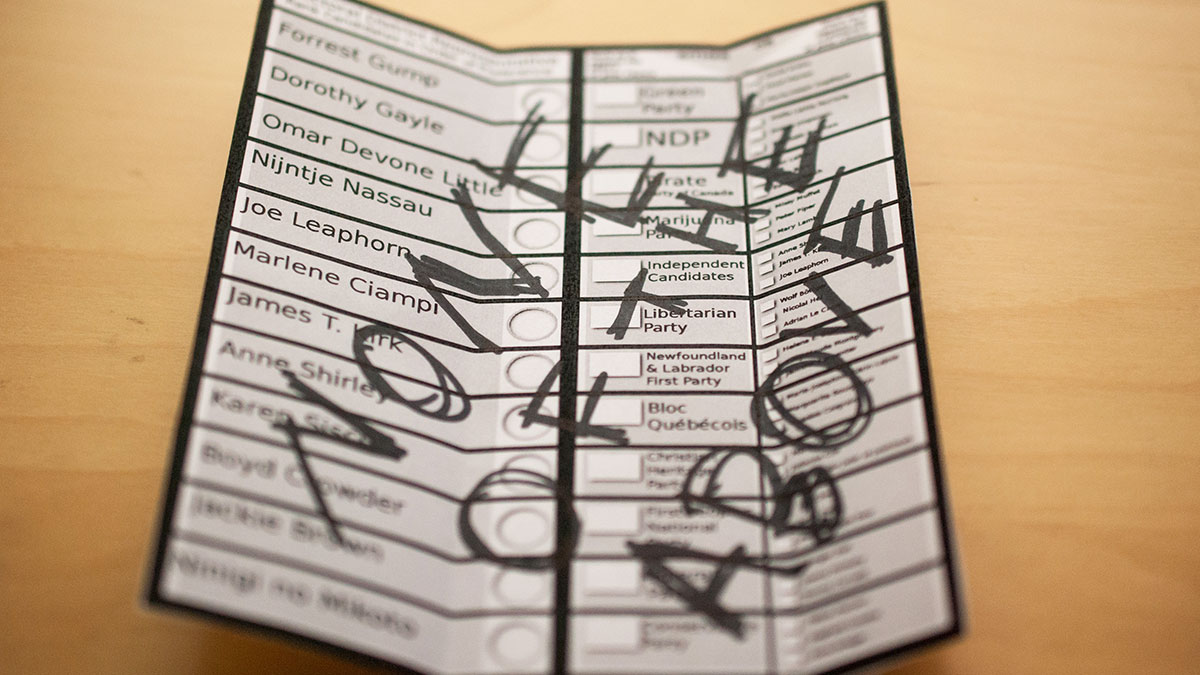 Josh Greschner
Josh GreschnerThere is an old anarchist slogan that says, almost self-righteously, “if voting changed anything they would make it illegal.”
I’m not nearly so cynical as to be convinced by such a statement, but I share something in common with those who conscientiously abstain from voting. I regard the most elementary of democratic actions as fundamentally optional. With the fall elections near at hand, we are on the precipice of a barrage of being told, primarily via re-posted social media bulletins, that we ought to do the damn thing on October 19th and cast votes in the federal election.
The most irritating of the arguments brought forth to shame people for not voting is the old ditty about our veterans sacrificing so that we could be secure in our democratic freedoms. They died so that we could vote. Has a more fatuous remark ever been made? To be sure, our war dead lie in their graves for a whole host of reasons, surely therein the protection of our democracy, but the right to vote also gives protection to a corollary, the right to abstain. The right to withhold one’s political voice in that way, or more dramatic yet, to destroy one’s ballot in the polling booth, which is a democratic action in itself, and one that deserves to be defended not only legally, but in the court of public opinion.
Being reminded in a parental tone to vote is annoying, but occasionally the sentiment is elevated from a mere annoyance to a knife in the gut of basic human rights. Australia is the case with which most will be familiar in terms of a state compelling its citizens to vote. The penalty for not making your way down to the polling station down under is twenty Australian dollars, which could buy you a few jars of Vegemite or a DVD of Crocodile Dundee, or whatever you buy in Australia. While the intentions may be benign (increasing political participation), such a base misunderstanding of the division between civil rights and civil duties corresponds to a sinister infringement on the freedom of citizens in a state that requires voting.
Of course it’s true that low voter turnout and apathetic masses are important issues, but it is paramount that we defend ourselves against any policy that compels speech. Freedom of speech also means the freedom to be silent, to not use one’s political voice in that way. Perhaps the self-appointed “stewards” of our democracy are unaware that reminding people to vote doesn’t necessarily lead to more informed voters, just as voter turnout isn’t the only diagnostic tool for gauging the vitality of a democracy. And why do these people continue to reinforce the assumption that investing political authority in a candidate or party by voting is the only way to represent oneself in a democracy? There are people who think it rather paltry to check a box and transfer their political voice to a candidate unsuitable to represent their interests, and for good reasons. If you are politically active at all, chances are you have more influence writing or speaking about policies than you do when you go to the polls.
In October, vote if you feel strongly about it, take a rain check if you don’t, and if you don’t much fancy the current system then doodle something neat and spoil your ballot.




